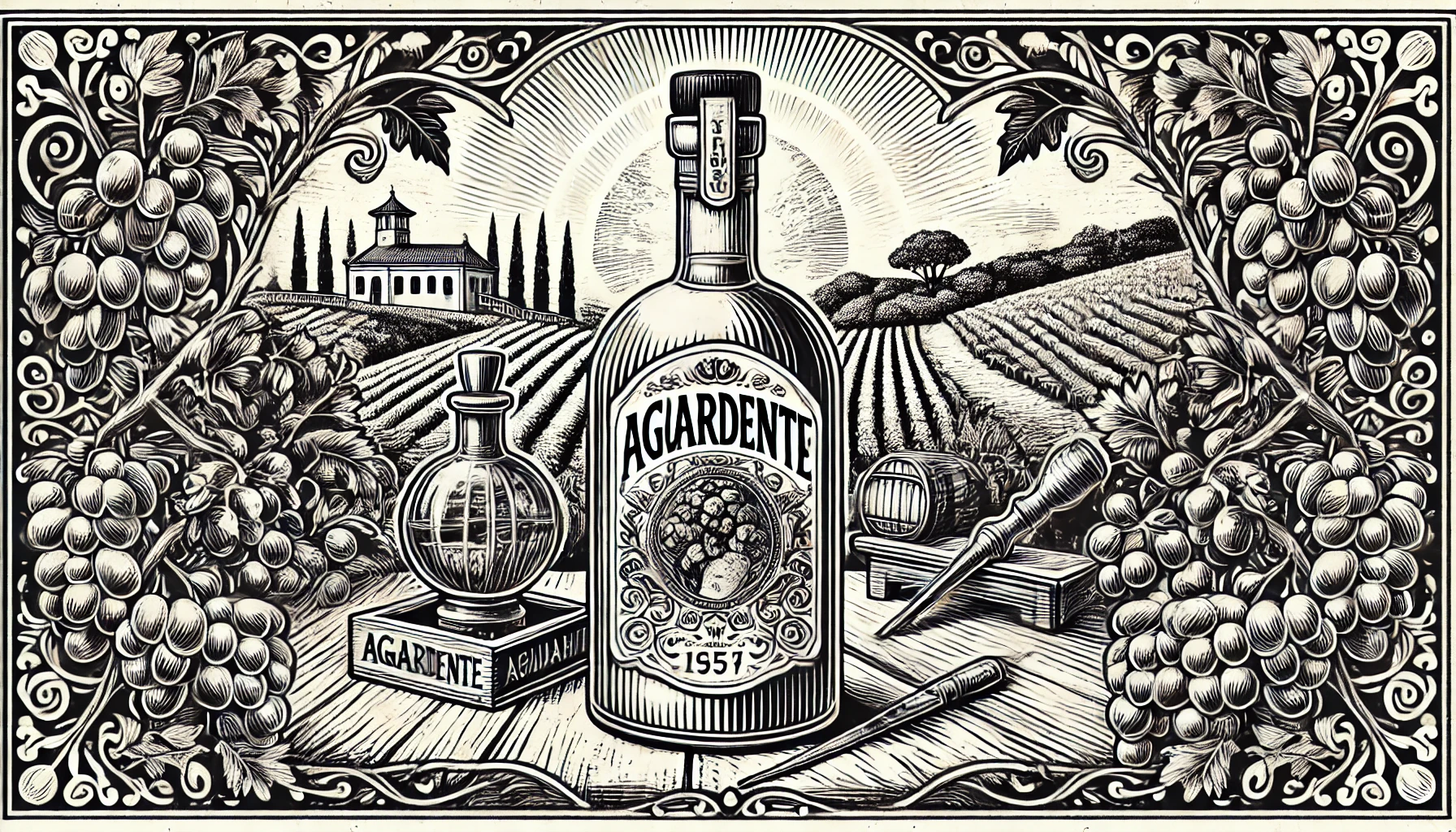
Aguardente (pronounced ah-gwar-DEN-tay) is a term used in Portuguese-speaking countries for strong alcoholic beverages distilled from fermented fruits or grains. The name itself means “burning water,” which gives you an idea of its potency. In Portugal, aguardente is most commonly made from grapes, and it plays a crucial role in the country’s winemaking tradition, especially in fortified wines like port and jeropiga.
How It’s Made
Aguardente is created through the distillation of fermented fruit, most often grapes, but it can also be made from other fruits or grains. In the case of wine production, it’s typically grape pomace (the leftover skins, seeds, and stems) that is distilled. This distilled spirit is clear and has a high alcohol content, usually between 35% and 60%, depending on the type and production process.
Role in Winemaking
In winemaking, it is used to fortify wines, especially in the production of port and jeropiga. By adding aguardente during fermentation, the winemaker halts the process, preserving the wine’s natural sweetness while boosting its alcohol content. This creates a stronger, sweeter wine with a higher concentration of flavors.
Different Types of Aguardente
There are various types of aguardente, each with its own regional flair. Some of the most famous varieties include:
- Aguardente de Vinho: Made from wine, often used in fortified wines like port.
- Aguardente Bagaceira: Made from grape pomace, similar to Italian grappa or French marc.
- Aguardente de Medronho: Distilled from the berries of the medronho tree, a traditional spirit in rural Portugal.
How to Enjoy It
It can be sipped on its own, often after a meal, or used as an ingredient in cocktails. In rural areas of Portugal, it’s also used in traditional remedies and as a warming drink during colder months.
Whether you’re sipping a glass of fortified wine or enjoying a homemade spirit, aguardente is an essential part of Portugal’s rich alcoholic traditions, adding a distinct flavor and kick to various beverages.
Curious about more wine terms and insights? Visit our Wine Wiki section and explore the basic wine terms for expert definitions and tips!